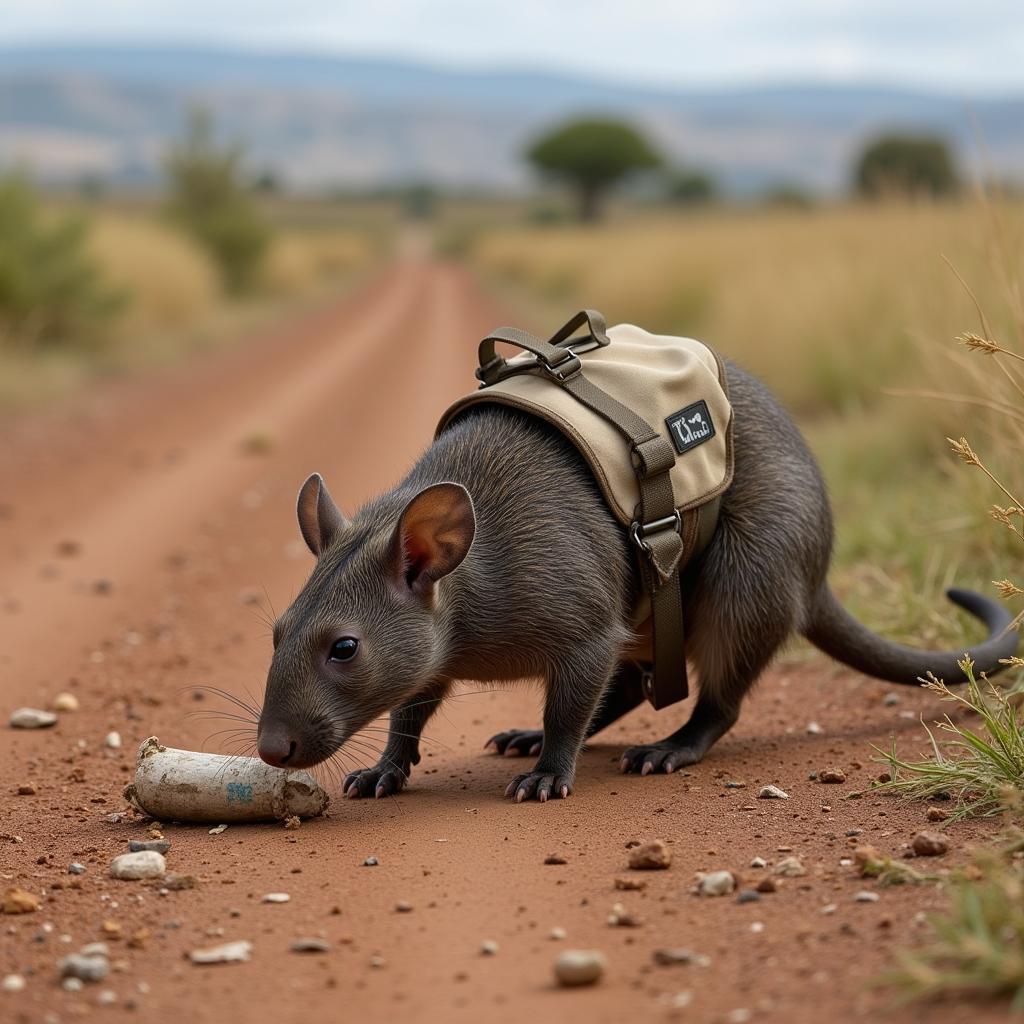African Forest Cobra: The Deadly Beauty of Africa’s Most Venomous Snake
The African Forest Cobra (Naja melanoleuca) is a formidable predator, known for its striking beauty and deadly venom. Found throughout sub-Saharan Africa, this snake is a fascinating example of the diverse wildlife that inhabits the continent. Understanding the African forest cobra’s biology, behavior, and venom is crucial for appreciating its role in the ecosystem and for ensuring the safety of those who encounter it.
The African Forest Cobra: A Majestic and Dangerous Species
The African forest cobra is one of the longest venomous snakes in the world, with some individuals reaching over 8 feet in length. Its coloration varies widely, but typically includes shades of brown, olive, and black with a striking white or cream-colored underside. This snake is highly adaptable and can be found in a variety of habitats, including forests, grasslands, and even urban areas.
What Makes the African Forest Cobra So Deadly?
The African forest cobra’s venom is highly potent and neurotoxic, meaning it affects the nervous system. A single bite from this snake can deliver a lethal dose of venom, capable of causing paralysis, respiratory failure, and ultimately, death. However, the African forest cobra is not inherently aggressive and will usually only bite if it feels threatened.
Understanding the African Forest Cobra’s Behavior
The African forest cobra is a diurnal snake, meaning it is active during the day. It is an excellent climber and can often be found in trees, as well as on the ground. This snake feeds primarily on rodents, birds, and other reptiles.
How to Stay Safe Around African Forest Cobras
The best way to stay safe around African forest cobras is to avoid them altogether. If you encounter one, it is important to keep a safe distance and never attempt to approach or handle it. Remember, this snake is not aggressive and will only bite if it feels threatened.
The Importance of Conservation
African forest cobras play a vital role in their ecosystem by controlling rodent populations and providing food for other predators. It is important to protect these snakes and their habitats to ensure their long-term survival.
What We Can Do to Help
There are several things we can do to help protect African forest cobras. Supporting conservation efforts, avoiding habitat destruction, and educating others about the importance of these snakes are all crucial steps towards ensuring their future.
African Forest Cobra FAQs
Q: How dangerous are African forest cobras?
A: African forest cobras are highly venomous and their bites can be deadly. However, they are not inherently aggressive and will only bite if they feel threatened.
Q: What should I do if I encounter an African forest cobra?
A: Stay calm and keep a safe distance. Do not attempt to approach or handle the snake. If you are in a populated area, notify local authorities.
Q: What is the treatment for an African forest cobra bite?
A: Immediate medical attention is crucial. Antivenom is available and should be administered as soon as possible.
Q: Are African forest cobras found in urban areas?
A: Yes, African forest cobras are highly adaptable and can be found in urban areas, particularly in regions with suitable habitats.
Q: What is the conservation status of the African forest cobra?
A: The African forest cobra is classified as “Least Concern” by the International Union for Conservation of Nature (IUCN). However, habitat loss and human activity pose threats to their population.
Q: How can I learn more about African forest cobras?
A: You can learn more about African forest cobras by visiting reputable wildlife conservation organizations or researching online resources.

Conclusion
The African forest cobra is a fascinating and powerful creature, playing a significant role in its ecosystem. Its venom is a powerful tool for hunting and defense, but this snake is not inherently aggressive. By understanding the African forest cobra’s biology and behavior, we can appreciate its importance and ensure its long-term survival.

